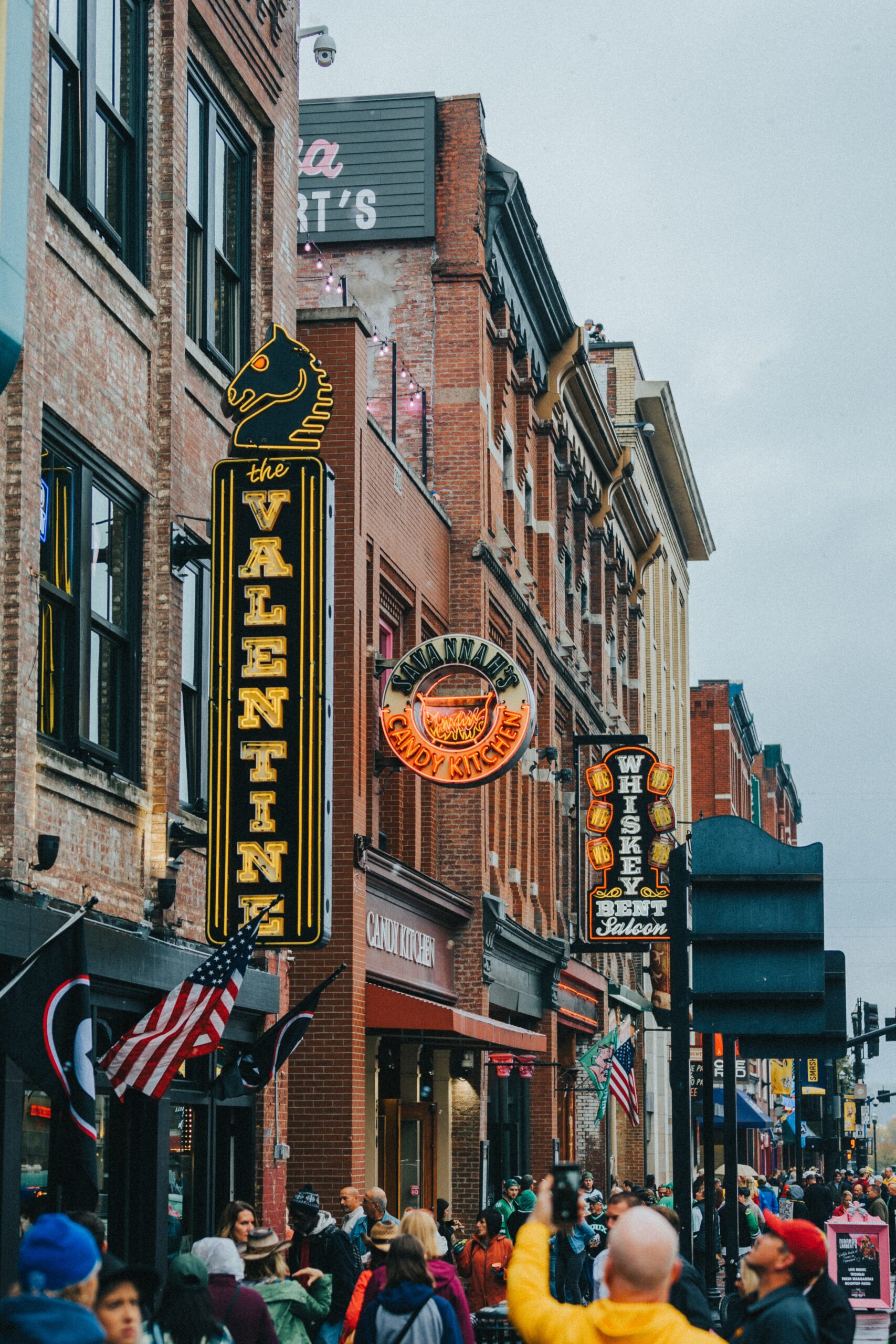Part 1: The Problem

A picture of an oil refinery (Credit: Johannes Plenio, Pexels)
The economy of Louisiana is primarily split into two major sectors: oil and tourism, the latter accounting for $1.3 billion in state and tax revenues in 2020. Despite this, the state continues to prioritize petrochemicals. Greater New Orleans is home to two of the four Strategic Petroleum Reserve storage facilities, 17 petroleum refineries, and a number of major pipelines. The state government subsidizes these interests, exempting major natural gas and oil companies from property and severance taxes. While the industry has been widely criticized for its negative environmental impact and subsequent lack of accountability, its advocates argue that oil provides vital jobs for Louisiana’s struggling economy. But are fossil fuel companies really as good for Louisiana as they claim to be?
The volatile nature of the petroleum industry, which is especially sensitive to fluctuations in supply and demand, has always posed a great risk to the economies that depend on it. New Orleans first experienced this in the early 1980s, when a sudden oil glut caused the price of petroleum to plummet. This created a recession and put thousands of people out of work, raising the unemployment rate to 13.2% by 1986. Since then, the industry has recovered slowly. Neither its economic output nor employment numbers have returned to the pre-1980s peak. More recently, the onset of the Covid-19 pandemic in 2020 dealt another major blow to the industry. The decrease in demand for jet fuel and gasoline significantly reduced operations, and 6 major refineries were forced to shut down. By April 2021, an estimated 7,500 jobs were lost as a result of the pandemic.
Not only has the oil industry failed to deliver on promises of employment, it has actively funneled money away from the residents of Louisiana, and the government has been entirely complicit. For decades, “Big Oil” lobbyists have used their deep pockets to influence politicians. In his book Katrina: A History, 1915-2015, Tulane professor Andy Horowitz describes the early years of the oil industry in Louisiana, writing:
“Working with local government, these [oil] firms rewrote Louisiana’s Constitution and redistributed its mineral wealth. Even as Governor Huey Long promoted quasi-socialist reforms to make ‘Every Man a King,’ and Perez boasted of his parish’s ‘Utopia’ with full employment, they were transferring huge amounts of public resources to private markets. Once they yielded influence to the oil interests, local politicians never regained the reins of power” (Horowitz).
In 2020, the oil and gas industry spent over $112 million on lobbying. This money goes a long way towards protecting their interests, and even prioritizing them over the needs of Louisiana’s residents. In 2018, the state legislature passed a bill adding oil and gas pipelines to the list of critical infrastructure. This law effectively allows oil companies to place pipelines at their discretion, even if they cross into private property. This disregard extends to protected wetlands as well. A woman protesting against the construction of the Bayou Bridge Pipeline in 2018 was arrested on two felony counts of trespassing, even though she had obtained permission from the owners of the land on which she held her protest. The courts later found that the builders of the pipeline had actually been the ones protesting since they had not obtained the necessary permits at the time of construction. They were made to pay a mere $450 penalty, and construction was allowed to continue.
The oil industry doesn’t just impose financial harm on Louisiana’s residents; it poses an existential threat to them. The state is losing coastland at unprecedented rates; while a certain amount of erosion is natural, active oil and gas extraction can double or triple the amount of land lost (Day et al.). Furthermore, the dredging of industrial canals by oil companies has decimated the protective buffer of the wetlands, making the coastlines even more vulnerable to erosion. Louisiana’s residents are on the brink of a refugee crisis as their very homes are being swept out from underneath them; some barrier island populations are already having to evacuate to the mainland. According to Syed Khalil, a geologist with the Coastal Protection and Restoration Authority, “up to 11,000 million cubic meters of sediment are needed to restore the state’s coastline, but about 58 percent of the offshore sediment in the gulf that could be used to rebuild Louisiana’s coast is blocked by pipelines”. It has become clear that Louisiana’s economic relationship with oil and gas is putting its residents in harm’s way. State leaders need to stop financing such a destructive industry.
Part 2: The Solution
If nonrenewable resources are no longer a viable option, then the government must direct its focus towards sustainability. Culture is a virtually limitless resource that can take an infinite number of forms, including art, music, architecture, performance, and food. Investing in the culture of a city is not only economically advantageous; it enhances the quality of life for everyone who lives there.
Nashville is an especially salient example. Like New Orleans, Nashville is known for its musical history; in fact, its nickname is “Music City, USA”. Nashville is home to a number of historic venues, clubs, and record shops. While it has always had an incredibly diverse music scene, the city became a cultural epicenter in 1925 with the establishment of the WSM radio station, which launched the Grand Ole Opry broadcast and introduced country music to popular culture.

Nashville’s famous Broadway Street (Credit: Ushindi Namegabe, Pexels)
Nashville’s economic growth really began to take off in the early 90’s. After a few decades of urban decline, the city’s downtown was empty and decaying, and its historic Ryman theater was left abandoned. Two major factors worked in tandem to revitalize the city. The first was the election of Mayor Bresden in 1991, who recognized the importance of the “Music City USA” brand and promptly began investing in the city’s downtown. The second was the restoration of the Ryman in 1992, which drew tourists into the newly renovated entertainment district.” In the 1990s, Nashville leaders finally and wholly recognized the importance of country music to the region’s overall economy,” writes Jeremy Hill, author of Country Music Comes To Town: The Music Industry and The Transformation of Nashville. “The local Chamber of Commerce finally realized the intense marketing potential of country music for the city, and looked to officially partner with the industry to promote country music tourism”. This partnership would allow the Country Music Hall of Fame, which had outgrown its original venue space, to relocate to 5th Avenue, right in the center of the entertainment district.
The city government has continued to create initiatives that support an ongoing musical tradition and include new ventures. These initiatives have created a music industry worth over $15 billion. And when the industry took a hit from the COVID-19 Pandemic, the government stepped up to help. Earlier this month, Metro Council Member Jeff Syracuse proposed the revival of the Music City Music Council, which was created in 2009 to help the music industry create economic partnerships. “But now one of the needs is, for sure, to help working creatives be able to sustain a living here and sustain a lifestyle here,” he says. The Nashville Metro Council has also approved a $300,000 study to identify and develop strategies to support the city’s independent music venues, many of which have been struggling to remain open during the past 2 years. They hope to keep Nashville’s historic venues from being squeezed out by rising property prices. These strategies have kept the city afloat during a devastating financial hardship, and given it a chance at recovery. Investing in Nashville’s music industry has been an investment in its future.
Part 3: Implementation
Like Nashville, New Orleans is a city with a rich musical background. It has more musicians per capita than just about anywhere else in the United States. Yet the city’s music industry is extremely limited, and many musicians are forced to leave in order to pursue a viable career. “The money in the music industry is in songwriting and publishing, and this is a live music town,” says Reid Wick, senior membership manager of the New Orleans Recording Academy. Indeed, New Orleans hosts over 130 music festivals annually—including the New Orleans Jazz & Heritage Festival, which has been sponsored by the Shell Oil Company since 2006. While these festivals generate millions of dollars in revenue for New Orleans, there remains an untapped well of potential.
In 2019, the economic development agency Greater New Orleans Inc. created the New Orleans Music Economy Initiative, or NOME, with their end goal being “for New Orleans to have both the brand of America’s premier music city and a thriving music economy to sustain our artists and keep them here”. NOME is led by a steering committee composed of local business leaders, many of whom work within the music industry. They are partnered with Sound Diplomacy, a global consulting firm that spearheads music initiatives in cities around the world. Together, the consultants on NOME devised a 5-step action plan for the city of New Orleans.
First, New Orleans must encourage business development, attracting music publishers, well-known artists, and record labels to the city. Next, the infrastructure must be created. This includes physical spaces for music production, as well as educational programs to connect budding artists to the industry. New Orleans must enact public policy to facilitate the growth of the industry; as an example, NOME’s action plan recommends making the Louisiana Sound Recording Tax Credit refundable. Simultaneously, Greater New Orleans Inc. needs to maximize its existing assets by organizing with the artists and music industry professionals it is already connected to. Finally, the city of New Orleans must create a marketing and PR campaign. The action plan recommends the slogan “New Orleans: Making Music Make Money”.
In the wake of the pandemic, the New Orleans Music Economy Initiative has been working quietly in the background to support local artists, and it’s about time the city government took notice. At a press conference in April 2022, Mayor Cantrell celebrated the success of the New Orleans Office of Cultural Economy in its efforts to attract film and television production. In the same way that it values film, the OCE must recognize the music industry as an important part of New Orleans’ future. Adopting the New Orleans Music Economy Initiative is a necessary step in moving away from economic dependence on petroleum and gas. While the city government has very little power to challenge the state legislature in its support of the oil industry, New Orleans can be a leader that inspires the rest of Louisiana to recognize the value of a creative economy. “The scientists are not just saying clearly, but waving their arms frantically, that the time to begin to move seriously to winding down fossil fuel development is now,” says Drew Caputo, vice president of litigation at Earthjustice, an environmental law firm. It’s not too late for Louisiana to get out of its toxic relationship with oil, but the clock is ticking.

An empty stage (Credit: Isabella Mendes, Pexels)
Works Cited:
Day, J., et. al. (2007). Restoration of the Mississippi Delta: Lessons from Hurricanes Katrina and rita. Science, 315(5819), 1679–1684. https://doi.org/10.1126/science.1137030
Hill, J. (2016). Country comes to town: The music industry and the transformation of Nashville. University of Massachusetts Press.
Horowitz, A. (2020). Katrina: A history, 1915-2015. Harvard University Press.
 NOLAbeings
Multimedia artist Claire Bangser created NOLAbeings as a portrait-based story project that marries...
NOLAbeings
Multimedia artist Claire Bangser created NOLAbeings as a portrait-based story project that marries...
 Data corner: Adobe Suite (create a PDF, social media graphic, presentation, edit a photo and video
Data corner is where you go to work with analytics and top tech skills. It takes on everything from PERL and SQL to Canva and Sprout Social.
Data corner: Adobe Suite (create a PDF, social media graphic, presentation, edit a photo and video
Data corner is where you go to work with analytics and top tech skills. It takes on everything from PERL and SQL to Canva and Sprout Social.
